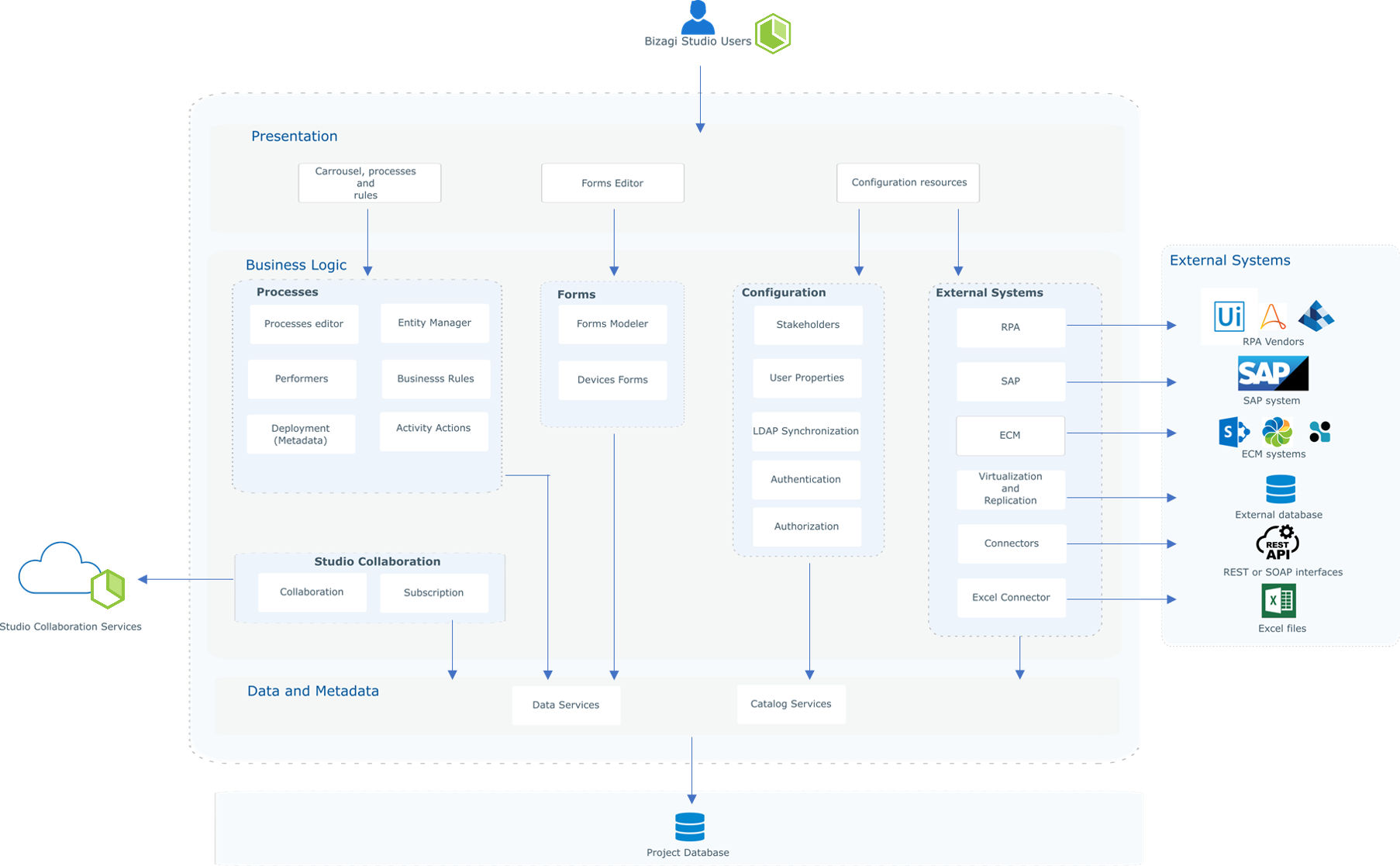Bizagi Studio desktop architecture
Bizagi Studio is your development SDK, enabling process developers to build intelligent process automation solutions. It allows you to define everything from the process model flow to the data model, business rules, and integrations. Thanks to its modular architecture, Bizagi Studio offers a low-code solution while addressing complex business and integration needs.
Bizagi Studio Architecture
The following diagram illustrates the Bizagi Studio desktop architecture:

Bizagi Studio is divided into three main layers:
- Presentation: The user interface of Bizagi Studio.
- Business Logic: Modules enabling process automation, external integrations, and project configuration.
- Data and Metadata: Manages the data and metadata stored in the development environment's database.
Architecture Layers
Each architecture layer contains modules designed for specific configurations and process automation tasks.
1. Presentation
This layer is divided into three main modules:
- Processes Carousel and Rules: Manages the interface for the process automation steps (except form editing).
- Form Editor: Displays the form editor and device-specific form editors.
- Configuration Resources: Provides interfaces for project and external system configurations in the expert and stakeholder views.
2. Business Logic
This layer encompasses all modules for intelligent process automation, divided into:
Processes Modules
- Processes Editor: Configures process logic using BPMN diagrams.
- Entity Manager: Manages the data model for processes.
- Performers: Configures task work allocation.
- Business Rules: Manages logic and execution of business rules.
- Deployment (Metadata): Controls metadata for deployment to other environments.
- Activity Actions: Configures integrations such as SAP, web services, email, or bots.
Forms Modules
- Forms Modeler: Edits task interfaces in the forms editor.
- Device Forms: Configures task interfaces for specific mobile devices.
Configuration Modules
- Stakeholders: Defines the experience-centric design for stakeholders.
- User Properties: Manages user properties like email, role, or department.
- LDAP Synchronization: Configures user synchronization with LDAP systems.
- Authentication: Manages Work Portal access controls.
- Authorization: Configures security settings for Work Portal sections.
External Systems Modules
- RPA: Configures bots for UiPath, Blue Prism, and Automation Anywhere.
- SAP: Integrates with SAP systems out-of-the-box.
- ECM: Manages integration with Enterprise Content Management systems (e.g., SharePoint, Alfresco).
- Virtualization and Replication: Configures virtualized or replicated entities with external databases.
- Connectors: Configures and invokes connectors within processes.
- Excel Connector: Handles the Excel out-of-the-box connector configuration.
Studio Collaboration Modules
- Collaboration: Synchronizes project metadata with the Studio Collaboration Services cloud repository.
- Subscription: Manages Studio Collaboration Services subscription and licensing.
3. Data and Metadata
- Data Services: Transfers data stored in the Bizagi Studio Project, including parameter and system entities.
- Catalog Services: Manages the metadata and ontology (relationships between entities) in the Bizagi project catalog.